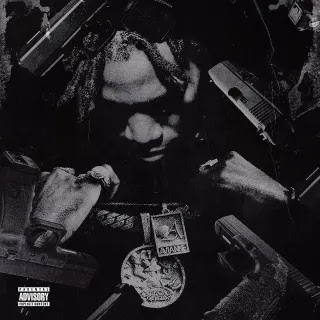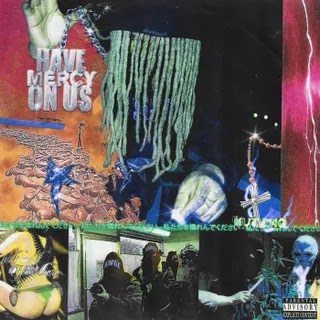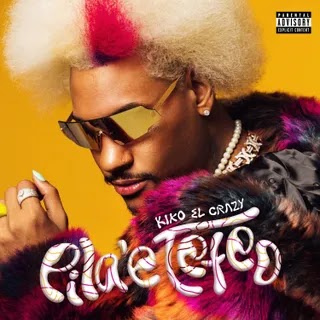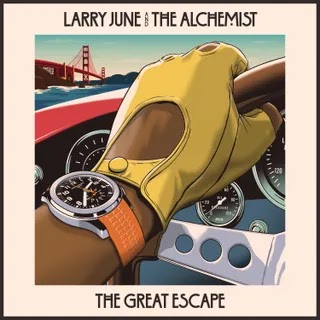The North Carolina rapper refines his technical wizardry on his second album, but he’s too often buried by 9th Wonder and Khrysis’ overblown production.
While an underclassman at Charlotte’s Myers Park High School, Reuben Vincent managed to squeeze a full-fledged rap triumph into his courseload. With production from North Carolina fixtures 9th Wonder and Khrysis, 2017’s Myers Park was the sort of go-for-broke debut that inevitably serves as a measuring stick. Flashing extraordinary mechanics across a suite of moody instrumentals, Vincent considered his life in wordy meditations, ably carrying an album without guest performers. He wore DatPiff-era influences on his sleeve—he flowed like Joey Bada$$, when he wasn’t harmonizing like Big K.R.I.T.—pursuing a modest thematic scope in deference to his remarkable technique.
The reception was muted, especially given the assembled personnel; Vincent enrolled at North Carolina A&T and secured a wealth of resources for the follow-up, Love Is War. Billed as a joint endeavor between Jamla and Roc Nation, with contributions from Dreamville’s Christo and TDE’s Reason—not to mention what can only have been a very expensive “Funny How Time Flies” sample—it feels like a tax write-off for the entire rap-industrial complex. 9th Wonder and Khrysis return as producers, joined by Sndtrk, Young Guru, and a half dozen others. It’s too big to fail, and too unwieldy for a cohesive statement: Now 22, Vincent isn’t unrecognizable so much as drowned by Love Is War’s orchestral arrangements.
Vincent remains a technical wiz, turning the album into a vocal clinic. On “Just Like a Dream,” he sails through intricate rhyme patterns with nimble enunciation. His voice is more textured than in the Myers Park days, and he modulates it in subtle degrees, gradually ratcheting up the tension like Nas on “One Mic.” The exacting syllable placement of “Geechie Suede” is underscored by Vincent’s breezy, melodic delivery. He’s honed his bars and breath control, but his increased musicality is the most impressive element of Love Is War.
Instead of making Vincent the featured instrument, though, the producers tend to bury him. Love Is War is a milepost for 9th Wonder, a backpack-rap icon once known for his serene beats composed on cheap desktop software. In the mid 2000s, his DIY approach posed a counterpoint to pricey major-label affairs; he wrangled evocative samples into concise drum loops, favoring approachable, small-town rappers. But between the frictionless layers of “Butterfly Doors,” the listless funk of “Geechie Suede,” and the ponderous chords of “Just Like a Dream,” Love Is War is slick and anonymous. The aforementioned Janet sample on “2ime Flies” marks the album’s nadir: 9th does nothing to disguise or dress up the instrumental, and it’s too obvious a reference for Vincent to make his own. It’s not a tribute or an homage, just an insipid cover.
Too often, Vincent takes lyrical cues from the melodramatic arrangements. “Bottle Service” and “Trickin’” are built around suggestive vocal loops; the former rehashes Kendrick Lamar’s “Swimming Pools,” while the latter paints a fallen woman straight out of J. Cole’s playbook. (In a weird pantomime of Cole’s origin story, Vincent claims to have skipped his senior prom for a chance to meet Lamar.) It’s a misapprehension that plagues Love Is War: the producers seem to have isolated ambient mood music as the main attraction of Lamar and Cole’s work, rather than the exquisite rapping. There’s also an unshakeable theater-kid quality to Vincent’s performance. He’s constantly referencing pop culture—A Different World, Uncle Luke, Hangin’ With Mr. Cooper, Steamin’ Willie Beamen—too old for him to have experienced firsthand. Could a 22-year-old really be so exasperated by women, money, and adulthood?
It’s tempting to blame North Carolina. Vincent harbors immense pride in his home, a place he’s described as “the perfect mixture of Southern culture and Northeast culture.” But Cole, Rapsody, and Little Brother—accomplished technicians and labored, sanctimonious lyricists—are inauspicious role models for such a promising artist. Their devotion to hip-hop as an institution manifests in reductive, classicist nostalgia, the defense of an imported canon. Charlotte boasts a breadth of fresh styles ranging from Mavi’s cerebral excavation to DaBaby’s freneticism and Elevator Jay’s down-home theatrics; Vincent needn’t be tethered to fake-deep revivalism.
















0 comments:
Post a Comment